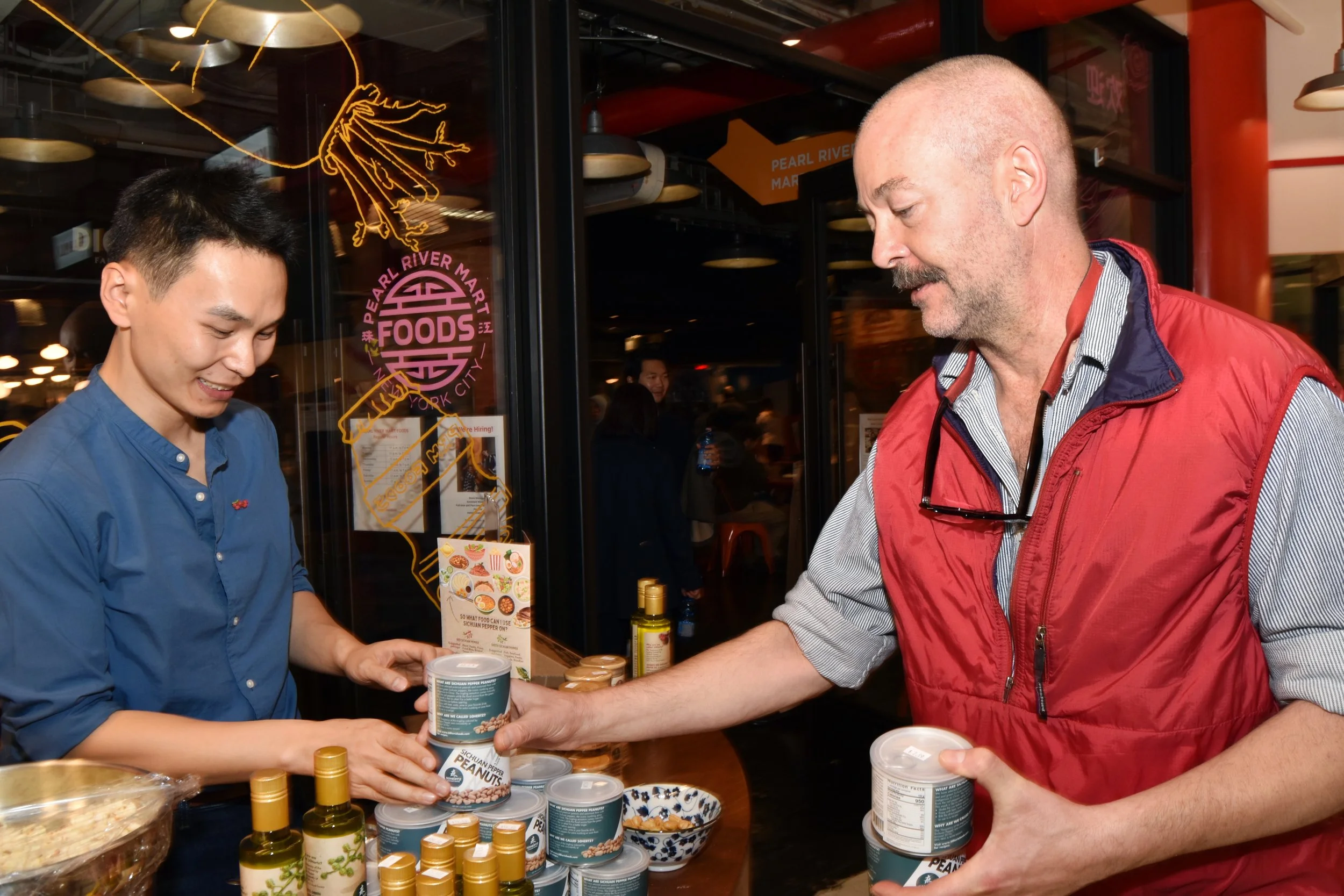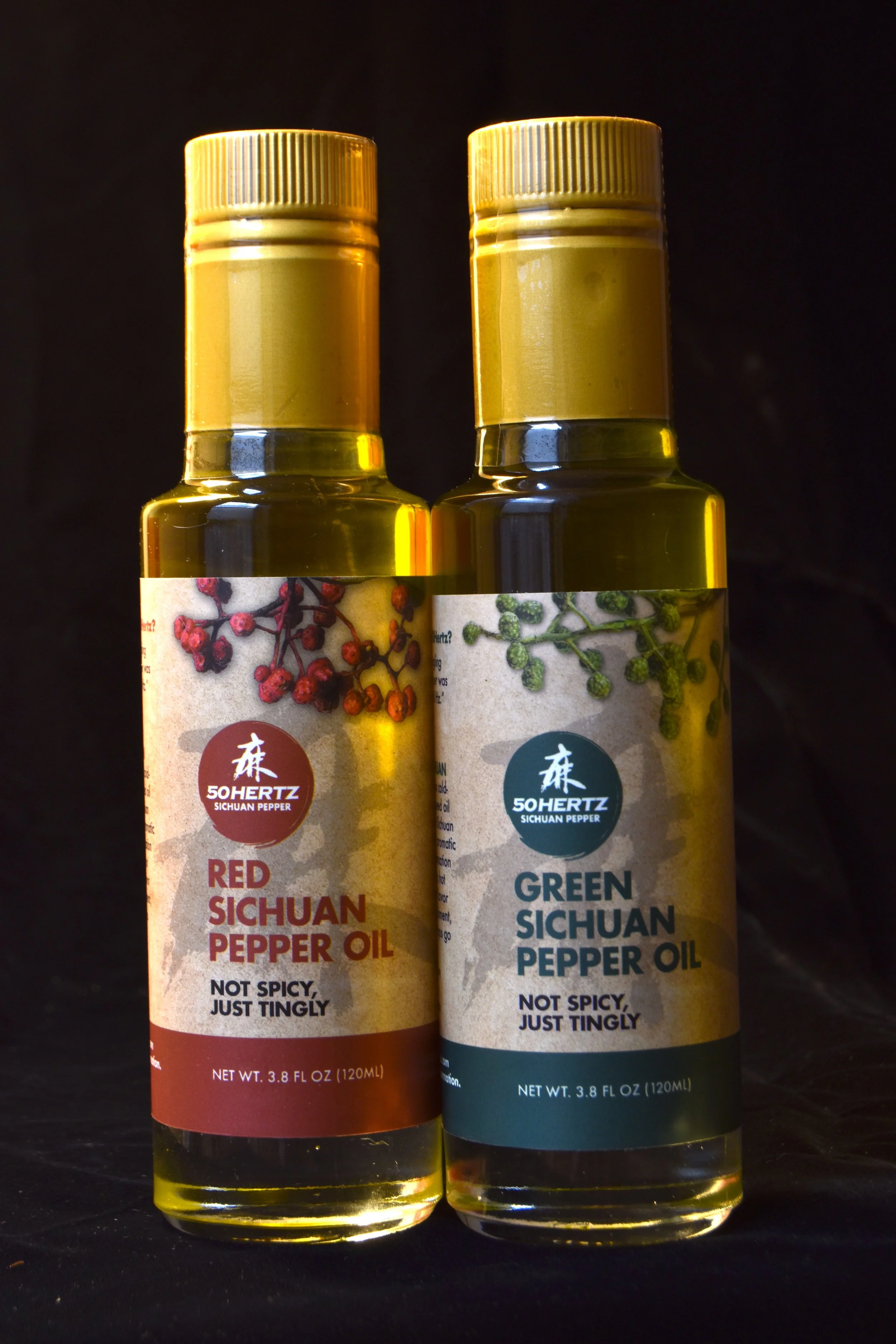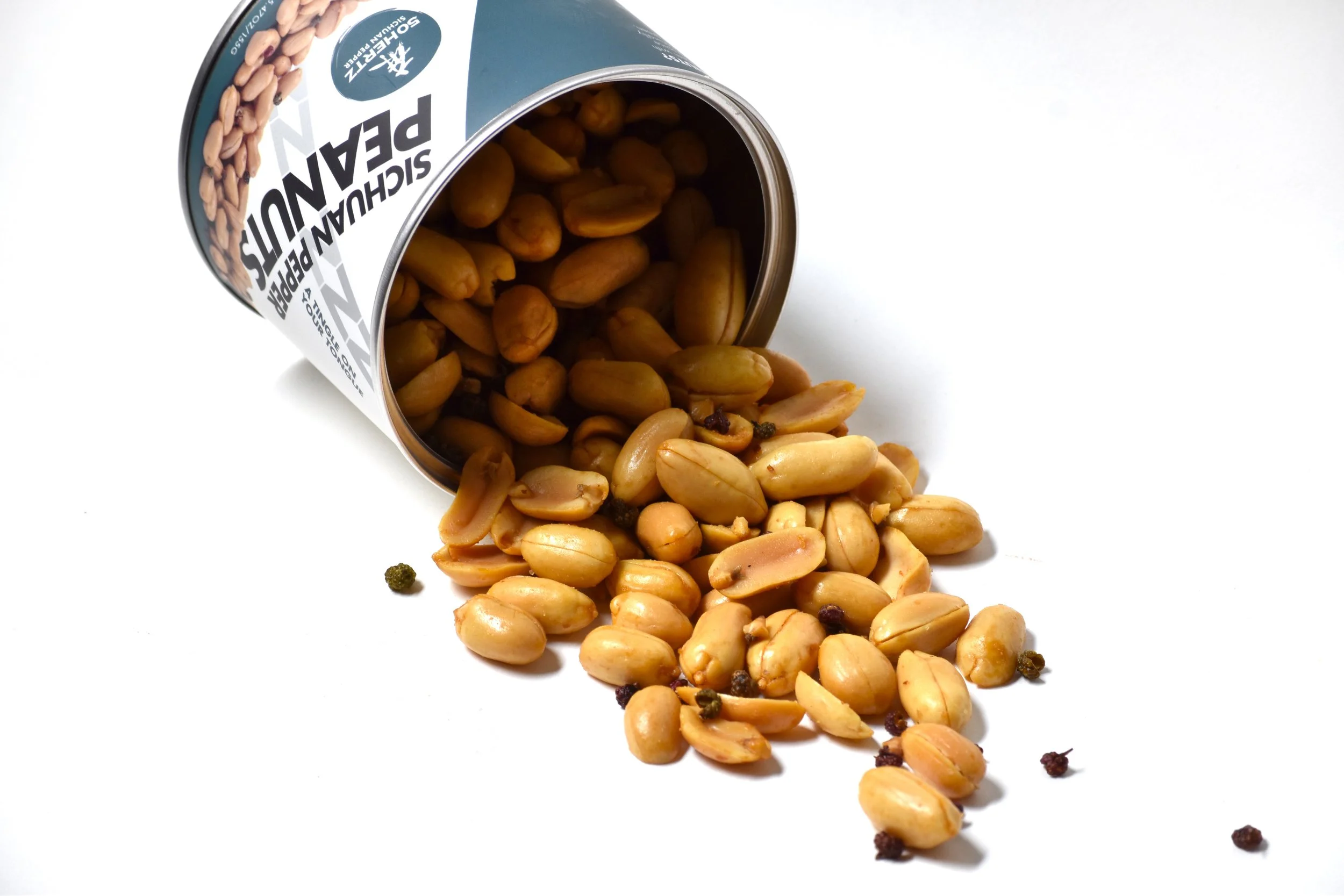Rebel with a ‘tingly’ cause: Yao Zhao brings piquant peppers to the US
His company, 50Hertz Tingly Foods, isn’t a chili oil or spice purveyor – it’s a ‘sensory company’ importing the taste of China’s Sichuan province to the US.
Yao Zhao of 50Hertz Tingly Foods in New York City: ‘Spread the tingle!’ Photo: Nina Roberts
Published in the Guardian, November 21, 2022
Yao Zhao had been working as a green energy specialist at the World Bank in Washington DC for several years when a weeknight dinner at home changed his professional course. His partner had prepared a simple pasta dish with shallots, mushrooms and parmesan cheese, and seasoned it with a green pepper oil that Zhao had brought back from his mother’s kitchen in Chongqing, China. “He’s British, it blew off his mind!” Zhao recalls. “He said, ‘I’ve never had this before! It’s so citrusy, floral and buzzing, tingling. I think this can go beyond Chinese food.” Zhao didn’t disagree, and was suddenly inspired to bring the joy of piquant Sichuan peppers to the US. Using his own savings, he launched 50Hertz Tingly Foods, a line of red and green pepper products featuring the rich flavors and, yes, tingly sensations from his childhood.
The peppers that anchor Zhao’s brand grow in south-west China and possess numbing properties that make mouths tingle and buzz. (They are not to be confused with chili peppers, which are primarily associated with their heat.) Food from the Sichuan province of China is fairly well known in the US, yet these Sichuan peppers, derived from tiny fruit balls that grow on prickly ash trees, have yet to enter the American culinary lexicon, but Zhao is betting on US consumers’ expanding desire to explore new facets of a popular cuisine. While many Asian-American businesses took a drubbing from the economic downturn during the Covid-19 pandemic, Chinese restaurants in the US have experienced a recent rebound, growing in number by 1.2% from 2021 to 2022, according to market research firm IBISWorld.
50Hertz Tingly Food founder Yao Zhao and a potential customer at Pearl River Mart. Photo: Nina Roberts
Zhao says that 50Hertz is not a chili oil nor a hot sauce manufacturer, but rather a “sensory company”. At a recent New York City tasting held at the downtown Asian emporium Pearl River Mart, the 34-year-old took it upon himself to underscore to each willing taster that Sichuan pepper is tingly as opposed to spicy. Many shoppers left with the product in hand. “Spread the tingle!” was Zhao’s parting cry.
Growing up, Zhao eventually resisted the standard career trajectory that his family and friends tried to foist on him. “You’re not really encouraged to find yourself [in China],” he says. “You are supposed to follow a path.” After graduating from the elite China Foreign Affairs University in Beijing, Zhao decided to spend a year backpacking around south-east Asia and India. A future in a bureaucratic government setting was not what he wanted. “Everyone around me was pissed,” he recalls.
Zhao eventually enrolled in graduate school at the Johns Hopkins University School of Advanced International Studies and landed at the World Bank as a clean energy specialist. He has since left his full-time position there to focus on 50Hertz. (Zhao still works as a consultant for the World Bank.)
Zhao estimates he’s sold 50,000 bottles of Sichuan pepper oil since his company’s launch in 2020. His products are gaining ground with chefs and home cooks, many on the east coast. Rose Ave Bakery in Washington DC has created “tingly biscuits”, as Zhao describes them, with cheddar cheese and his Sichuan peppers. His customers often write to him, informing him about drizzling 50Hertz oil on pizza, popcorn, scrambled eggs and even ice-cream.
What made you confident that people in the US would take to the tingle of Sichuan peppers?
People love stimulation in their food. Why do people like hot sauce? Why do people drink sparkling water? You can just drink [plain] water!
Red and Green Sichuan Pepper Oil by 50Hertz. Photo: Nina Roberts
But it took you another two years to come out with your business after deciding that this was your calling.
An important part of my story is getting a US green card under the “Einstein” visa program. When you actually have a legitimate status, you can do anything. It really freed my mindset. I don’t think I have an “entrepreneurial urge”, but I do have a rebellious side.
Can you speak to the hustle that goes into starting your own line?
I don’t think doing sales pitches is everyone’s cup of tea – it really pushes you out of your comfort zone, to talk with strangers and get rejections. But you hear insights you would never get without doing it. That said, I’ve got to kick myself. It doesn’t come naturally. What incentivizes me is introducing something new to the world.
How has 50Hertz grown in the years since you came to market?
My vision has never changed: I want to be a sensory company – not some spice purveyor, or a chili oil. The challenge is in marketing, since very few people have experienced this sensation. We recently launched our first snack product, tingly peanuts with red and green peppers. In the three months since we launched it, we’ve sold about 6,000 cans.
What’s been the biggest inflection point in the company’s story so far?
I started the business with my own savings, and we’re still bootstrapping. About two months into the business, a reporter from the New York Times asked me if he could write about it and – this really speaks volumes about my inexperience – I just replied, “Sure, yeah, write about it.”It was David Leonhardt’s morning newsletter, and when it came out, we sold 20,000 bottles [of pepper oil] overnight. That was like our seed money, and I’m forever grateful.
What’s in the future for 50Hertz?
A regional buyer at Whole Foods reached out to us a while ago, but I think the oil still needs more product recognition to fly off the shelves. That said, the peanuts are built for retail!



